Search IMG Library
YOUR SPECIALISM- See all
- Gastroenterology
- Microbiology
- Urology
- Rheumatology
- Stroke Medicine
- Ophthalmology
- Oncology
- Neurology
- Histopathology
- Haematology
- ENT Surgery
- Acute Medicine
- Anaesthetics
- Respiratory
- Dermatology
- Geriatrics
- Radiology
- Surgery
- Paediatrics
- Psychiatry
- Emergency Medicine
- Critical Care & ICU
- General Medicine
139 blogs found

Specialist Registration and the NHS Histopathology Job Market
For many overseas pathologists, sitting and passing the FRCPath used to be considered the “Golden Ticket” to senior histopathology jobs in the NHS. But is that still the case? And if not, why not? And what does specialist registration, portfolio pathway (CESR) have to do with all of this? First lets have a look at the job market as of 2025 in the NHS, and then we can start to connect the pieces together and give you the best advice to help your application stand out from others.
Histopathology Job Market for IMGs
It may sound surprising in the context of the many pathology vacancies advertised that go unfilled, but there has never been a greater demand for and supply of qualified & experienced histopathologists applying for jobs in the NHS. So why do so many NHS posts remain unfilled?
There is a vacancy rate of between 10 -15% whilst at the same time workload has never been greater. A combination of factors impact this, and senior healthcare leaders have been repeating this same message over the years - people are living longer, people have more complex morbidities, and a growing and developing diagnostic service in the NHS is essential for the NHS to keep up with demand. It is also widely acknowledged that this is coming at a time or decreasing budgets and increasing costs of industry. When we consider this, we start to understand why despite pathology being the backbone of most medical diagnosis, so many NHS histopathology vacancies are not appointed to - despite many candidates applying to their roles.
NHS experience - why is this so important?
Medicine is practiced differently around the world irrespective of the specialty. Whether trained in India, Hong Kong, Singapore, or Nigeria, qualified histopathologists all have something valuable to offer the NHS. Some training programs may lend well to the NHS, and some may take longer to adapt, but generally speaking the consensus is “pathology is pathology”. What does need more time is often the less obvious stuff. New IT systems, new day-to-day language, different reporting expectations, different case referral process etc etc. However, our belief, as a specialist international recruitment company, is that how quickly some adapts is as much down the individual - and good people, open minded professional, quick learners, and motivated pathologist will quickly thrive despite everything being new. Even if it takes a little longer for someone to adjust, ultimately they will adapt and in time become an asset to the United Kingdom’s NHS.
Butfor many NHS Trusts, this is precisely the problem - time is always scarce, as are budgets. And this is why specialist registration and/or NHS experience become so important for them.
GMC Specialist Register - for senior IMGs this means via Portfolio Pathway (CESR)
Specialist Registration with the GMC means that a doctor is recognised as a specialist (or consultant grade) in their field, and can work as a consultant in a permanent NHS role. Essentially it is a certification given by the GMC to show that a doctor has completed a vetted specialist training program a medical specialty, or has demonstrated enough experience equivalent to this. The portfolio pathway (formally known as CESR - but still commonly called as such) is the most common route for doctors who haven’t completed a UK or European training programme to join the GMC Specialist Register. This then allows an overseas-trained doctors to work as a permanent consultant in the NHS.
Specialist registration - how does this affect your job search?
If you’re really not familiar with what specialist registration is, then have a read of this blog before coming back to this article. To understand the content of this blog, and to benefit from our ongoing series discussing portfolio pathways (CESR) applications - you need to be clear on the significance of being on the specialist register, how to compares to the UK CCT training pathways, and the significance of being on the specialist register for your specialty.
In terms of your job search, it is like having or not having NHS experience in some ways. Not being on the specialist register doesn’t necessarily exclude you from being shortlisted for senior or consultant role, but if you have specialist registration - you are all but guaranteed an interview. Histopathology is very much a consultant-led specialty in the UK given the way the training program is structured. People start training and run right through until they’re a consultant, and so most of the histopathology roles in the NHS are consultant positions. If you do not have specialist registration in place, then NHS clients will often look to understand what progress a doctor has made with their CESR portfolio before deciding whether to interview them.
What does this have to do with budgets and finances?
If a trust does not feel they can appoint you substantively (permanently) to a role within 2-years, trusts may often hesitate to appoint. With budgets tight across the NHS, and with high levels of governance over budgets, new recruitment can become so difficult to get approved if it is not seen as sustainable. Vacancy control panels, financial approval, NHS process of advertising and onboarding, often will take so much time from an already time-stressed budget holder that if the appointment is only for 1 or 24-months, and not permanently. Thus, being able to offer some a substantive (permanent) contract is a hugely impactful consideration for NHS pathology departments. If a trust feels that a candidate will complete their CESR in 12 to 24-months - then it becomes a much easier consideration for them.
Can you complete CESR overseas?
Yes and no. You can in theory complete a portfolio overseas, but in reality its very difficult to do and the best thing IMGs can do is to part-complete their applications overseas, before securing a job and completing the process in the UK.
Preparing in advance and organising your portfolio. Make your CV stand out
By organising and getting ahead of our portfolio before coming to the UK - you give yourself an edge over other IMGs making the same applications. A candidate presenting themselves with a full and detailed understanding of what they need to do with their portfolio will stand out a mile compared to others - and will often secure interviews for consultant, specialist or specialty doctor roles in the NHS.
If you want to understand more about the portfolio pathway, the process, or your standing in the histopathology job market then register with us and we can have a quick chat before running through in more detail.

Where Can I Take the MRCPsych CASC Exam? A Complete Guide for International Psychiatrists
Where Can I Take the MRCPsych CASC Exam? A Complete Guide for International Psychiatrists
If you're an international psychiatrist preparing for the MRCPsych CASC exam, one of your first questions might be, “Where can I take the CASC exam?” With several international centres now available, candidates have greater flexibility than ever before. This guide will explain the current exam centres, the application process, and key details to help you on your path to UK specialist registration.
What is the MRCPsych CASC Exam?
The MRCPsych CASC (Clinical Assessment of Skills and Competencies) exam is the final stage in the Membership of the Royal College of Psychiatrists examination series. It is a practical assessment designed to test candidates on their clinical and communication skills across 16 stations, where they interact with patients (played by actors) in simulated clinical scenarios.
Before you can sit the CASC exam, you need to:
Have passed both MRCPsych Paper A and Paper B.
Have at least 24 months of post-foundation clinical experience in psychiatry.
For further eligibility criteria and full details on how to apply, visit the RCPsych’s official exam application page.
Where Can I Take the MRCPsych CASC Exam?
The MRCPsych CASC exam is held at three key locations worldwide. Candidates can choose the centre that best suits their location and travel needs:
United Kingdom (Sheffield)
The primary CASC exam centre is located in Sheffield, UK. Most UK-based candidates and many international candidates choose this centre. The exam is conducted twice a year, typically in January and September.
Singapore
For candidates based in Asia, Singapore offers a convenient location. This centre runs the CASC exam once annually in June.
Doha, Qatar
The newest centre is located in Doha, providing a more accessible option for candidates in the Middle East. The Doha location holds the exam once annually in November.
These three locations ensure the CASC exam is accessible to international psychiatrists, providing multiple options to suit different geographical regions.
How to Apply for the MRCPsych CASC Exam
Applications for the CASC exam must be submitted through the RCPsych’s online application portal. It’s crucial to keep an eye on the key dates and deadlines for each exam sitting. You can find the full schedule of exam dates, application deadlines, and other important updates on the RCPsych Exam News and Updates page.
Key points to remember when applying:
Be sure to apply early, as places at each centre can fill up quickly.
Double-check your eligibility criteria to avoid any delays in processing your application.
Make sure all documents (e.g., proof of experience, qualifications) are ready and uploaded during the application process.
Recent Updates on CASC Exam Centres and Dates
As of 2025, the CASC exam centres are located in the UK, Singapore, and Doha. This international spread reflects the growing demand for more accessible exam locations for international psychiatrists.
Additionally, the RCPsych regularly updates candidates on any changes in exam schedules, policies, or application processes. Candidates are encouraged to check the RCPsych exam news page for any updates, including the latest on registration dates, exam format, and more.
FAQs About the MRCPsych CASC Exam for International Candidates
1. Can I take the MRCPsych CASC exam outside of the UK?
Yes, you can take the CASC exam in Singapore or Doha, Qatar, in addition to the UK. All centres follow the same schedule, offering exams in January and September.
2. When is the CASC exam held?
The CASC exam is held several times a year, in January, June, September and November.
3. How do I choose my CASC exam centre?
You can choose the exam centre that is most convenient for you (Sheffield, Singapore, or Doha) when you apply for the exam through the RCPsych application portal.
4. How do I prepare for the MRCPsych CASC exam?
Preparation involves practice with clinical scenarios, focusing on communication, diagnosis, and patient management skills. Consider attending mock exams and study groups specifically tailored to the CASC format, and join our online IMG Psychaitrist group for free courses and resources. You will join a group of UK and international psyhciatrists working towards MRCPsych.
Final Thoughts
The MRCPsych CASC exam is a significant milestone for international psychiatrists looking to gain UK specialist registration. With exam centres in the UK, Singapore, and Doha, it’s now more convenient for overseas candidates to take this essential step. Be sure to regularly check the RCPsych exam news page for updates and ensure all your documents and requirements are in order before applying.
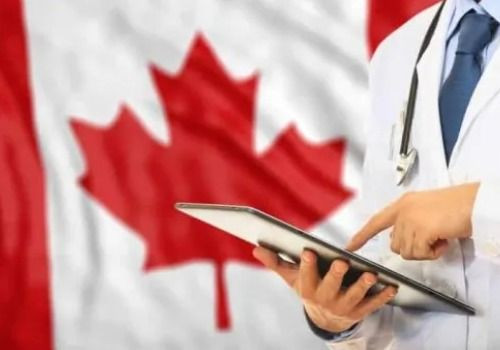
Working as a doctor in Ontario, CA - What IMGs need to know
Are you an overseas doctor considering a career in Canada?...
..Then look no further! With its stunning landscapes and high quality of life, Ontario is actively seeking international doctors to join its healthcare workforce and invite into its society to help further enhance the medical community. The recent campaign targets IMGs, especially General Practitioners (GPs), consultants, and medical specialists, to address staffing shortages and enhance diversity within the medical profession. Doctors with CCT or CCST qualifications from the UK or Ireland are particularly sought after. With growing demand, doctor jobs in Ontario offer competitive salaries and excellent opportunities for career progression.
Ontario is Canada’s most populous province and home to some of the country’s largest cities, including Toronto, Ottawa, and Hamilton. With its diverse and rapidly growing population, Ontario’s healthcare system offers significant opportunities for IMGs who are interested in pursuing a career in Canadian healthcare.
In this blog, we’ll provide an essential guide to healthcare in Ontario for overseas doctors. We’ll cover the structure of the healthcare system, how to get licensed as a UK or Irish trained doctor, where you might work and what your salary can look like.
To answer some of your q’s - here is an overview of Ontario’s Healthcare System
Did you know that Ontario’s healthcare system is publicly funded and provides universal coverage to all residents through the Ontario Health Insurance Plan (OHIP). This means that, regardless of a patient’s financial status, most healthcare services are free at the point of use. Healthcare in Ontario is delivered by a mix of private practitioners, community health centres, hospitals, and long-term care facilities. For GPs, this presents both an opportunity and a responsibility, as likely most of their patients will be covered by OHIP and will not pay directly for most medical services, which can make way for a more personal and consistent doctor-patient relationship.
Ontario's healthcare system is run by the Ministry of Health and Long-Term Care (MOHLTC), which oversees funding, policies, and planning. While OHIP covers most healthcare services, some services such as dental care or prescription drugs may not be fully covered, but this can be covered by individual health insurance.
How can you work in Ontario as a UK or Irish trained IMG?
For IMGs, entering Ontario’s healthcare system can be a rewarding but slightly complex process. This is where we, at IMG Connect, will be at your service to help guide you through the intricate process. The first step is ensuring that you meet the qualifications required to practice medicine in the province. The College of Physicians and Surgeons of Ontario (CPSO) is the regulatory body responsible for ensuring that all physicians in Ontario meet the necessary standards.
Here’s a step-by-step look at how IMGs can begin their journey to working in Ontario:
1. Assessing Your Qualifications - the first thing you’ll need to do is ensure that your medical qualifications are recognised in Canada. This involves an assessment by The Medical Council of Canada (MCC). The MCC administers the Medical Council of Canada Evaluating Examination (MCCEE) and also assesses your medical school credentials, read more here for a breakdown of the assessments.
If your medical school isn’t on Canada’s list of accredited institutions, you may be required to complete additional exams or qualifications, for example, the Medical Council of Canada Evaluating Examination (MCCQE) Part 1 is often necessary for IMGs to demonstrate that they meet Canadian medical standards. Read more here for a more in depth look at what you might need under your belt as an IMG.
2. Apply for Registration with the CPSO - once you’ve passed the necessary exams, you’ll need to apply for registration with the CPSO. There are three primary pathways for IMGs:
Independent Practice. If you meet all the requirements, you can apply for an unrestricted medical license to practice independently in Ontario.
Supervised Practice. Some IMGs may need to undergo a period of supervised practice (usually for a year or two) before they are granted independent practice rights. This is common for those with limited Canadian experience or who have not completed their residency training in Canada.
Specialist Registration. If you are a trained specialist, you will also need to pass additional exams related to your specialty before being granted a specialist license.
3. Finding employment opportunities in Ontario - once you are registered with the CPSO and raring to go, you can begin the fun part – searching for an ideal opportunity that fits your personal goals, and this is where one of our specialised recruitment consultants can help you find the perfect match. To streamline this process, you can use a comprehensive account-based portal on an MCC web page, called Physicians Apply, to store your medical credentials and other important documents that will be necessary to apply for a doctor job in Canada. When it comes to choosing the right setting to practice in, you have several options available. The most common settings for physicians in Ontario include:
Hospitals - Ontario’s hospitals are diverse, ranging from large teaching hospitals in urban centres to smaller community hospitals in rural areas. Depending on your specialty, you might find opportunities in both public and private hospitals.
Family Medicine – A family doctor is often the primary healthcare provider, especially for patients who live in more rural areas. These settings are used to treat non-emergency medical issues and will often be practicing in a clinic, like a GP surgery, which are often publicly funded.
Specialist care - Ontario has a variety of specialist needs, and many IMGs who have completed specialist training in countries like the UK & Ireland can find work in the province’s various hospitals and clinics.
Community health centres - These centres provide primary care to underserved populations and are often looking for skilled doctors. They are a good option if you want to serve in a multi-disciplinary team and address the needs of specific populations, such as newcomers or low-income individuals.
4. Work permits and immigration – as a Uk or Irish trained doctor, you’ll also need to secure a work permit. Ontario’s immigration system is tied closely to federal immigration policies, and many IMGs enter Canada through the Express Entry program or other pathways that offer skilled workers the chance to become permanent residents. Visit the Canadian Government website here for more details about how to check your eligibility to apply for Express Entry.
As a physician, you may also qualify for specific programs aimed at recruiting skilled medical professionals to Canada. The Ontario Immigrant Nominee Program (OINP) is a popular pathway for skilled workers, including doctors, looking to live and work in Ontario. Find out more here.
What can you expect life to look like in Ontario?
You’ll be pleased to know that Ontario is a culturally diverse province, home to people from all over the world with a healthy population of just over 16 million. Its cities generally offer a high standard of living and excellent work-life balance, however, keeping with current economic trends, the cost of living can be high, particularly in Toronto. This being said, salaries for doctors are very competitive and there are significant benefits to practicing in Ontario. Read on to understand what some of these benefits are.
Salaries – what you earn in Ontario as a doctor can vary, depending on specialisation and what role you are interested in. Top earning doctors in Ontario can see annual salaries of $336,500 on average, where an average salary for a doctor in Ontario can be around $166,000 per anum. There are some ways in which your salary can be affected by your specialisation, for example, the number of hours your role requires you to work, meaning you may have the chance to earn more through longer working hours, or if you are a speci family doctor
Cost of living and Housing - while Ontario offers a high quality of life, it is important to understand the cost of living. Toronto, for example, is one of the most expensive cities in Canada in terms of housing. However, you will see that smaller cities, like Ottawa, Hamilton, or those in more rural Northern Ontario have significantly more affordable options. It's important to plan your housing and lifestyle budget ahead of time to ensure a smooth transition, and if you are taking a role with IMG Connect this is what we will help you to do.
Cultural diversity and Community support - one of the most celebrated things about Ontario is its multiculturalism. The province is home to people from every corner of the world, and this is reflected in the communities, food, festivals, and cultural support networks available. As an IMG, you’ll find a supportive community of fellow medical professionals, and you’ll likely have the opportunity to interact with patients from diverse backgrounds. If you’re interested in learning about some of our previous successful candidates, who’ve forged strong connections in new countries with second languages to master, have a read of some of our IMG Stories available on our website.
Ontario also has a strong IMG community, with many professional networks and organisations aimed at helping you integrate into the Canadian medical system. Programs and mentoring opportunities are often available through the CPSO, medical schools, and other professional groups.
Work-life balance - Ontario’s healthcare system places a significant emphasis on work-life balance. While your work hours can vary depending on your specialty, Ontario offers flexible scheduling for many physicians, especially those working in community settings or clinics. This means you can maintain a balance between your professional responsibilities and personal life, which is crucial if you're relocating with your family.
Challenges and Opportunities for IMGs in Ontario - while Ontario offers numerous opportunities, it’s important to acknowledge some of the challenges that IMGs may face when starting their careers in Canada.
Challenges:
Credential Recognition. The process of getting your international qualifications recognized and gaining the necessary certifications can take time. You may need to pass exams, undergo supervised practice, and navigate the regulatory systems carefully.
Cultural Adaptation. Though Ontario is welcoming, adapting to a new country, culture, and medical system can take time. You’ll need to familiarise yourself with Canadian medical practices, patient expectations, and the specific health needs of Ontarians.
Opportunities:
High Demand for Physicians. Ontario’s population continues to grow, and there is a high demand for medical professionals in both urban and rural areas. If you are flexible about where you practice, you may find numerous opportunities in underserved communities.
Support for IMGs. Ontario’s healthcare system and professional organisations offer various support mechanisms for IMGs, including orientation programs, mentorship, and financial assistance in some cases. You are never alone in this process and, again, this is where IMG Connect will be at your side to support you through the process.
In a nutshell
Ontario offers a wealth of opportunities for UK & Irish trained doctors who are looking for a job in Canada. Ontario is an attractive destination for IMGs who want to contribute to healthcare while experiencing quality of life in one of the world’s most naturally breathtaking and diversely represented provinces. With a strong healthcare system, a diverse patient population, and numerous employment opportunities, we are confident that we can guide you into the perfect role.
While there are challenges to navigate, including licensing requirements and the need for adaptation, the rewards of working in Ontario’s healthcare system are plentiful.
If you’re an IMG looking to practice in Ontario or any other part of Canada, IMG Connect is here and happy to help! Our expertly-trained team is experienced in guiding doctors through every stage of the recruitment process—from licensing to relocation—so you can start your journey with confidence. Reach out today to learn more about how we can support your medical career in Ontario!

European Pathologist in the NHS - Digital opportunities & pathways
Recognised qualifications, endless potential
For European-qualified anatomical pathologists, transitioning to the NHS is now smoother than ever. Recognition of specialist qualifications from EEA countries means that most anatomical pathologists can register with the GMC and work as histopathology consultants in the UK. However, it’s not just about recognition; understanding the NHS’s unique approach to pathology can make a significant difference for those making the move.
This series explores the evolution of NHS pathology services, beginning with the Carter Review, which catalysed key changes in UK histopathology. We’ll dive into the practical impact on subspecialisation, digital pathology, and NHS networks, mapping how these changes could shape your NHS experience.
The Carter Review - a catalyst for modernising NHS pathology
In 2008, the UK government commissioned the Carter Review, a significant report aimed at transforming pathology services in the NHS. Led by Lord Carter of Coles, the review highlighted areas for improvement, pushing for efficient, cost-effective, and patient-centred pathology services. For European pathologists joining the NHS, understanding these reforms provides valuable context for today’s NHS setup.
Here’s a look at the key reforms and why they matter:
Centralisation of Pathology Services - centralising pathology services into regional labs, instead of maintaining many smaller units, was one of the Carter Review's foundational recommendations. This shift aimed to reduce duplicate work, improve quality control, and facilitate better investment in advanced equipment for enhanced diagnostic capabilities.
Emphasis on Digital Pathology - digital pathology was a major focus and something most pathologists get excited about! Digital platforms streamline histopathology workflows, enabling faster reporting, reducing storage needs, and allowing for easier peer reviews. The UK is currently one of the most digitally developed pathology systems in Europe—a potential game-changer for those accustomed to more traditional setups.
Standardised Processes and Reporting - the Carter Review recommended standardised protocols to ensure uniformity across NHS services. With a more consistent approach to diagnostics, patients receive equitable care, regardless of which hospital they attend, and what laboratory their biopsy gets sent to. This also aligns with the Royal College’s points-based system which is designed to support system-wide adoption of best practices. You can read more about the RCPath Points based-system here.
Optimising Workforce Efficiency - the review recognized the importance of a balanced, efficient workforce, advocating for an increased role for biomedical scientists (BMS) to relieve histopathologists, allowing them to focus on complex cases. This support system is crucial in reducing diagnostic backlogs and improving patient outcomes.
Building Clinical Networks for Subspecialisation - recognising the benefits of subspecialisation, the review encouraged collaboration across clinical networks. With centralised hubs, referrals to subspecialist pathologists are more efficient, improving access to expert diagnostics, especially for rare or complex cases.
The Modern NHS - so what can a European (EEA) pathologist expect?
In the years following the Carter Review, the NHS has made strides toward a more digital, centralised, and specialised pathology landscape. While some regions are more advanced in implementing these changes, the NHS’s commitment to modernisation is clear. For European pathologists, this means:
A digitalised workspace - NHS laboratories now offer state-of-the-art digital infrastructure, providing opportunities for remote working, enhanced workflows, and digital archiving.
Opportunities for subspecialisation - pathologists can increasingly specialise in one, two, or three specific organ systems or pathology subspecialties, supported by an efficient referral network not just in their laboratory, but in their regional (and national) network.
Job security and flexible working conditions - with high demand and ongoing recruitment needs, NHS consultants enjoy secure employment with the flexibility to work from home as digital systems continue to advance.
Competitive compensation - recent updates to NHS consultant pay scales have increased earning potential, making the NHS an attractive option for European-trained histopathologists. Here you can find the NHS pay circulars, and here we discuss their comparison with other European healthcare systems, focusing on the consultant pay in particular. With pay in the NHS now far higher than many other European countries, its a great moment to take that step upwards into the NHS and UK pathology sector.
Joining the Digital NHS Landscape
If you’re a European pathologist interested in joining the NHS, now is the time to explore your options. The UK welcomes EEA-qualified pathologists to contribute to a healthcare system embracing innovation and collaboration. If you're curious about GMC registration or how your experience could translate to NHS practice, reach out to IMG Connect to discover how you can step into a modernised, supportive, and specialised NHS environment. Alternatively, you can read through our Route to the UK blog for Pathologists blog published on our IMG Library.
Whether you’re ready to make the move or just starting to explore the possibilities, the NHS offers a promising, high salaried, digitally integrated, and patient-centred future for European-trained anatomical pathologists

Understanding the RCPath Points System for Histopathology in the NHS
Many overseas pathologists wonder how UK reporting patterns are structured within the NHS. One of the key benefits of working as a histopathologist in the NHS is the use of the RCPath points system. But what does this actually mean?
What is the RCPath Points System?
The RCPath points system is used by the Royal College of Pathologists (RCPath) in the UK to measure the workload of pathologists. The system assigns points to different activities based on their complexity and the time required to complete them. This helps in workload planning and ensures that tasks are distributed fairly among pathologists. You can read more about the points system via the RCPath publicised document here.
Here's a summary of some key features, focusing on histopathology, cytology, and autopsy practice. You can also find the most recent updates on this via the RCPath website here.
1 - 5 Minutes
1 Point
6 - 10 Minutes
2 Points
11 - 20 Minutes
3 Points
21 - 30 Minutes
5 Points
31 - 50 Minutes
8 Points
> 50 Minutes
12 Points
Points Allocation:
Histopathology: Different types of specimens are assigned specific points based on the complexity of the examination. For example, simple biopsies might be assigned fewer points, while complex surgical resections would have higher points.
Cytopathology: Points are allocated based on the type of cytology specimen, such as fine needle aspirations or exfoliative cytology.
Post-Mortem Examinations: Autopsies are assigned points depending on the type (e.g., routine or complex cases).
Workload Management:
Daily/Weekly Limits: The system sets recommended daily or weekly points totals to prevent overworking and ensure manageable workloads.
Job Planning: Pathologists' job plans are often based on achieving a certain number of points per session or week, balancing clinical duties with other responsibilities like teaching or research.
Fair Distribution:
The system aims to distribute cases evenly among pathologists by assigning points based on workload rather than just the number of cases. This helps maintain fairness within pathology departments.
Adjustments:
Complex Cases: Cases requiring additional time or expertise, such as those needing second opinions or further testing, may have adjusted points.
Special Circumstances: Adjustments can also be made for special circumstances, such as when pathologists are in training or dealing with new techniques.
What is the Purpose and Benefit of the RCPath Points System?
Ultimately, every decision in the NHS is made with the aim of improving patient experience and care—a central theme of all work within the NHS.
The RCPath points system benefits patient outcomes in the following ways:
Standardisation of Reports and Quality: Provides a standardised way to measure and compare workloads across different institutions and pathologists.
Efficiency of Reporting and Staff Workload: Helps in resource allocation, ensuring that pathologists are not overburdened and that the quality of work is maintained.
Transparency Among Colleagues: Offers transparency in workload expectations and aids in discussions around job planning and workload distribution.
The RCPath points system is a structured approach to ensuring that pathologists’ workloads are balanced, manageable, and fair, contributing to better patient care and job satisfaction.
If you would like to read more about how staffing and workload for pathology departments are assessed and managed by the Royal College, an updated version of the RCPath Best Practice Recommendations is due for publication soon.
Your IMG Consultant is happy to assist with any negotiations related to your job plan to ensure your experience is taken into account.
For more information on NHS doctor benefits and pay arrangements in the UK, take a look at our IMG Resources library.
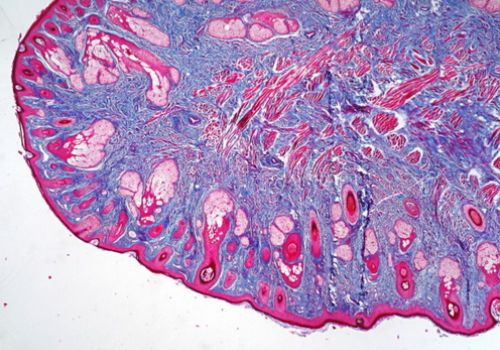
FRCPath Part 1 Online - changes to the exam delivery
FRCPath Part 1 Online
In response to the ongoing challenges posed by the COVID-19 pandemic, the Royal College of Pathologists has continued to offer the FRCPath Part 1 exams online. This includes FRCPath Part 1 in Histopathology, Haematology, and Microbiology.
This means that FRCPath Part 1 can be taken from the comfort of your own home. This development allows the College to continue offering the FRCPath Part 1 exam to both UK trainees and overseas pathologists.
Please note that the delivery of FRCPath Part 2 remains offline, with examinations being conducted in person.
FRCPath Part 1 Delivery
The format of the Part 1 exam remains unchanged – 125 SBA (single best answer) and EMQs (extended matching questions) which aim to assess the candidate's overall knowledge and understanding of histo/cytopathology, basic science underpinning pathology (including microbiology), and full understanding of autopsy practices undertaken in an NHS District General Hospital.
FRCPath Part 2 is available in multiple overseas centres; in Irbid, Jordan, Cairo, Egypt or Dubai, UAE. These centres will be offered on an annual basis in either Spring or Autumn session subject to there being sufficient candidates to run the centre.
All other Diploma practical, Part 1 practical and Part 2 examinations can only be taken in the UK
The online exam is delivered through a company called TestReach.
Candidates will have the opportunity to trial the examination software before the exam to familiarise themselves with it ahead of time. The TestReach system is fully proctored, and candidates will need to complete both an IT systems and environment check before the exam. These checks will ensure that candidates' devices are suitable for the exam and that they are in an environment that satisfies exam conditions, i.e., where they do not have access to textbooks or other revision materials.
For more information on the online examination, see the College website here, or read their FAQs here.
How to Apply
The application window for the Autumn 2024 sitting of the FRCPath Part 1 exam will open at the end of July and close in mid-September. While the examination date has yet to be finalized, candidates are advised to apply early and may withdraw their place for a refund if the examination date is unsuitable.
The cost of the exam is £700. For up-to-date information on exam and application dates, keep an eye on the College website here.
For more information on FRCPath in Histopathology, take a look at our collection of articles and blogs here, where we explore the full examination suite, including a detailed look at the structure and format, fees, preparation, and resources.
If you are looking for general information that any overseas doctors might need to know, check out our IMG Resources library.
We hope this is helpful for any overseas doctors preparing to sit their FRCPath Part 1 exam, and the team here at IMG Connect wish you the best of luck!
Don’t forget to share your progress and successes with us using the hashtag #imgstories on social media. We love to hear from you.
Join the online histopathology community – connect with like-minded histopathologists and dedicated pathology recruiters in the IMG Histopathologists Facebook group.
For regular news and updates on the Royal College and all things histopathology, follow IMG Connect on social media using the links below:

MRCPsych Paper B – A detailed breakdown for overseas Psychiatrists
The MRCPsych exams can be overwhelming for overseas Psychiatrists and UK trainees alike.
Where do you turn for study materials? How do you prepare for the exams? What are the exams dates and fees? Where can I sit the exam? How can I find support online?
In this blog we will explore MRCPsych Paper B and everything that you need to know about how to sit the exam, taking a detailed look at the following topics:
An overview of MRCPsych
What is MRCPsych Paper B?
How is the exam structured and marked?
Am I eligible to sit this exam?
As an international psychiatrist, when and where can I sit the exam?
Where and how do I apply?
How much will the exam cost?
What is the best way to prepare for MRCPsych B?
#IMG Tips
Passed? What next?
Skip to the relevant section if you know what you’re looking for.
An overview of MRCPsych
The MRCPsych exams are the central components of psychiatry training in the UK. The examination series is designed to test the candidate’s knowledge of basic medical sciences as well as the clinical skills needed for diagnosis and management within psychiatry.
For IMGs taking this route, full MRCPsych satisfies the postgraduate requirements for full GMC registration.
The exams within the series are as follows:
MRCPsych Paper A
MRCPsych Paper B
MRCPsych CASC
For a more general overview of the MRCPsych examinations via our IMG Resources, please click here.
MRCPsych Paper B
Paper B is a three-hour written exam which asses critical review and the clinical topics in psychiatry.
Each questions is worth 150 marks, comprised of 150 questions:
One third - critical review
Two thirds - clinical topics
Exam structure and marking
Paper B will cover the following sections of the syllabus:
Organisation and Delivery of Psychiatric Services
General Adult Psychiatry
Old Age Psychiatry
Psychotherapy
Child and Adolescent Psychiatry
Substance Misuse/Addictions
Forensic Psychiatry
Psychiatry of Learning Disability
Critical Review
In Paper B, the percentage split, and marks allocation for the 150-mark exam will be approximately:
Eligibility
Trainees from any country in the world can sit the MRCPsych Examinations providing that they meet the eligibility requirements.
You are eligible to sit Paper B if you are a fully registered medical practitioner. It is also recommended that you have 12 months experience in Psychiatry before attempting Paper B.
Exam locations and dates
Since the Pandemic, commencing from 2021, the Royal College of Psychiatrists has made the decision to move all MRCPsych exams online and will remain this way for the forseeable future. This means you can sit the MRCPsych exams from your home country with submission and preparation details available on the Royal College website.
This change makes it much easier for international psychiatrists to complete their Royal College exams and work towards GMC registration within a normal timeframe and with reduced disruptions.
Exams are usually held three times a year – you will find the most up-to-date information on exam and application dates on the Royal College website.
Applications
To apply you’ll need to complete the Royal College online application form. The form is only available during the published application dates and must be submitted prior to the closing date. If you miss the cut-off date, your application will not be considered.
For new overseas candidates, you will need to register for a Royal College login first.
You will need to provide the following:
Personal details
Primary Medical Qualifications & Registration
Training
Written paper selection
Fees
At the end of your application, you will be directed to an online payment system where you can pay by credit or debit card, so make sure you have your details ready.
Once your application is complete you will receive two confirmation emails, one to confirm receipt of the application and one to confirm the payment has been received.
See below for MRCPsych Paper B fees for 2024:
PMPT Trainees and Affiliates (UK & Ireland Centres) - £496
Non-PMPT Trainees and Affiliates (UK & Ireland Centres) - £550
Preparation
With lots of materials online, we have discussed with our community of international psychiatrists as to the best resources and materials relating to the exams. Most IMGs recommended starting with the Royal College, who have created useful resources to help you to prepare for the exams. See below:
Syllabus: We always suggest that this is the best place to start – plan your study around the curriculum topics and make a road map to your success in the exams. You can find this here.
Current critical review syllabus: For Paper B, candidates will need to ensure that they make optimal use of the MRCPsych Paper B critical review - evidence-based practice syllabic content, available here.
Sample Papers: These will help you polish your exam techniques and are a good way to regularly benchmark your knowledge against the syllabus. Additionally, they will help you work quickly on the day as you will already know what to expect. The samples can be found here.
Marking schemes: Candidates pass or fail the written papers based on their performance, and not how well you perform against other candidates. As such, it is a good idea to understand how the exam is worked, so you can maximise your exam skills, giving you the best chance of a pass. These can be accessed here.
Sample exam: These can help you understand the exact format of the exam and to familiarise yourself with the online exam environment. This is available here, you'll need scroll down to see 'Taking Papers A and B onine: Sample Exam'.
Online exam guidance: Detailed guidance written specifically to guide candidates in preparing for an sitting an online exam, including technology checks and timings. The guidance can be accessed here.
The Royal College also suggest taking a look at Passing the MRCPsych - an insider’s guide - a useful resource to help you to get over the first steps. This is available here.
#IMG Tips
Start your revision early – preparation is key, and what better way to avoid last-minute stress?
Choose the best resources for you – whether it’s the Royal College materials, online courses or flash cards, try to figure out what works best for you.
Join our online support community – why not be part of a community of like-minded psychiatrists and MRCPsych aspirants? Join IMG Connect on social media for a place to ask questions and share resources.
Passed? What next?
Now that you have passed Paper A and B you are now eligible to sit the CASC exam. For more information take a look at our blog we will explore MRCPsych CASC and everything that you need to know about how to sit the exam, including syllabus, dates, results, fees and preparation.
For more useful blogs & articles on exams, registrations & qualifications to help you find your dream job in the NHS - take a look at our IMG library.
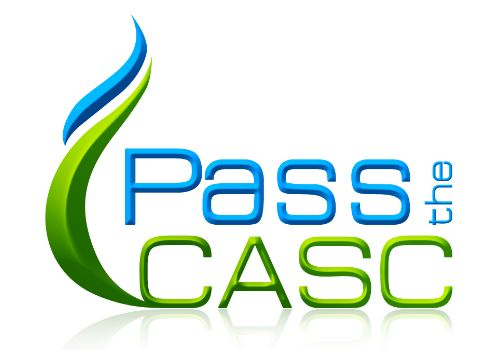
How to succeed at MRCPsych CASC with PassTheCASC
In this blog, we’ll be covering some of the key aspects of the CASC exams, as well as introducing you to the team at PassTheCASC, an online learning and resource platform for MRCPsych CASC aspirants. We will be covering:
What is MRCPsych CASC?
Why does MRCPsych CASC Matter?
What resources are available?
The 3-Keys
Tutorial Examples
CASC Simulator
What is MRCPsych CASC?
Let’s begin with a quick recap of the CASC exam. The Clinical Assessment of Skills and Competencies or CASC is a practical exam which takes the format of an OSCE and tests your clinical skills in a range of competencies.
It is made up of two circuits of individual stations made up of:
Five stations on history taking, including risk assessment
Five stations on examination, including physical and mental state
Six stations on patient management
For full guidance on the structure of the exam, visit the examination page of the Royal College website or see our detailed blog on the MRCPsych CASC exam here.
Getting started with preparation
It can be tough to know the best place to start, psychiatry consultants (both IMGs and UK trainees) as well as the team at PassTheCASC, it seems the general consensus was that the Royal College website is the best place to begin. There are some great resources on their website to help applicants prepare for the exam.
Why does MRCPsych CASC Matter?
The value of holding MRCPsych CASC cannot be understated, serving as both a symbol of your medical competence as a psychiatrist and giving you a competitive edge in the NHS job market. Attaining full MRCPsych demonstrates to potential employers that you have the necessary knowledge, skills, and experience to provide high-quality care to patients. To secure and work in an NHS job at the Speciality Doctor grade, and above, many NHS Trusts will list MRCPsych CASC as essential criteria.
MRCPsych also provides a stepping stone for further specialist training and can significantly enhance career prospects for international psychiatrists, more easily facilitating entry into more senior positions in the NHS, such as speciality doctor, the new specialist grade and consultant roles.
What resources are available?
IMG Connect have a library of written resources geared towards preparation for the CASC exam. If you’re interested in any of these, please get in touch here and we would be delighted to share these with you.
IMG Psychiatrists MRCPsych CASC Crash Course
This is a tailored MRCPsych CASC course for overseas psychiatrists sitting the CASC exam. This course offers weekly sessions covering the entire exam and its various domains, including marking and station requirements. This is accompanied by small group role-play sessions to allow IMGs to practice stations across various scenarios with feedback on each station, delivered by an experienced NHS psychiatrist and specialist psychiatry recruiters. These sessions are completely free to all doctors.
The course is supplemented by additional advice and guidance on MRCPsych CASC as a whole, GMC registration support, as well as guidance and webinars on other topics such as finding work in the NHS, relocation support and specialist registration.
You can access our IMG Psychiatrists CASC Study Course by joining the Facebook group here.
Partnering with PassTheCASC
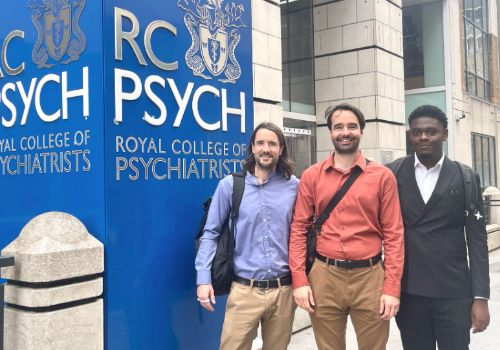
Exploring the Royal College of Psychiatrists’ new member's event 2024
As we anticipate the Royal College of Psychiatrists New Member's Ceremony for this year, let's explore what awaits attendees on this auspicious occasion!
As the new members assemble in the prestigious hall, they are met with enthusiastic applause and friendly faces. The ceremony commences with a captivating address by the president, establishing the ambience for the evening. Following this, the ceremony officially begins with a warm welcome from the president, followed by enlightening speeches from distinguished figures within the field.
Throughout the ceremony, voices from diverse specialities unite to honour the achievements of the latest additions to the Royal College of Psychiatrists. It's a jubilant affair, marked by inspirational narratives, heartfelt speeches, and a palpable sense of solidarity that fills the room. The event serves as a grand showcase, spotlighting the accomplishments and contributions of the newest members of the Royal College of Psychiatrists.
A pivotal moment of the ceremony is the presentation of certificates to the new members, symbolizing their dedication and perseverance. It's a proud moment not only for the individuals themselves but also for their families, whose unwavering support has been integral to their success. Upon attaining membership in the Royal College of Psychiatrists, individuals gain access to a wealth of resources and support networks.
To qualify for membership, individuals must fulfil specific criteria, including completing their core psychiatry training and successfully passing relevant examinations
Sources
https://www.rcpsych.ac.uk/members/rcpsych-ceremonies/new-members-ceremonies#:~:text=11%20and%2019%20October%202023%20and%201%20February%202024&text=Those%20who%20registered%20as%20Members,invited%20to%20attend%20these%20ceremonies.
Connect with us
Get in touch with us to find out more about The Royal College of Psychiatrists’ new member's event as an IMG! If you are attending, please join us on either the 21st or 28th of March or the 4th of April at the Leonardo Royal London Tower Bridge- opposite The Royal College of Psychiatrists building, for a celebratory drink!
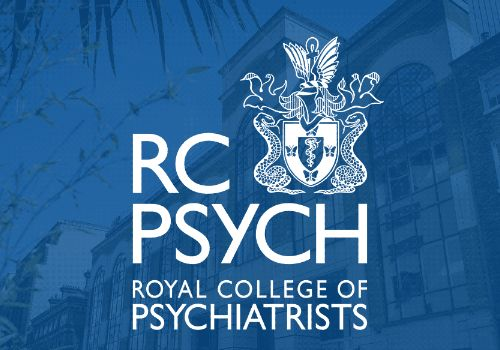
Join us as we delve into the world of the Royal College of Psychiatrists’ new member's event
As the Royal College of Psychiatrists New Member's Ceremony is coming up, we wanted to delve into what you could expect on the day!
As the new members gather in the grand hall, they are greeted with warm applause and welcoming smiles. The ceremony begins with a keynote by the president, setting the tone for the evening, the ceremony then kicks off with a warm welcome by the president, followed by speeches from prominent figures in the field.
During the ceremony, voices from various specialities come together to celebrate the accomplishments of the newest members of the Royal College of Psychiatrists. It is a joyous occasion filled with speeches, inspirational stories, and a sense of camaraderie that resonates throughout the room. The ceremony is a grand event that highlights the achievements and contributions of the newest members of the Royal College of Psychiatrists.
One of the highlights of the ceremony is the awarding of certificates to the new members. This moment serves as a tangible recognition of their hard work and commitment. It is a proud moment for both the individuals and their families, who have supported them throughout their journey. Upon becoming members of the Royal College of Psychiatrists, individuals gain access to a wide range of resources and support systems.
To be eligible for membership, individuals must meet certain criteria, including completing their core psychiatry training and passing the relevant examinations.
Sources
https://www.rcpsych.ac.uk/members/rcpsych-ceremonies/new-members-ceremonies#:~:text=11%20and%2019%20October%202023%20and%201%20February%202024&text=Those%20who%20registered%20as%20Members,invited%20to%20attend%20these%20ceremonies.
Connect with us
Get in touch with us to find out more about The Royal College of Psychiatrists’ new member's event as an IMG! If you are attending, please join us on either the 11th or 19th of October at the Leonardo Royal London Tower Bridge- opposite The Royal College of Psychiatrists building, for a celebratory drink!
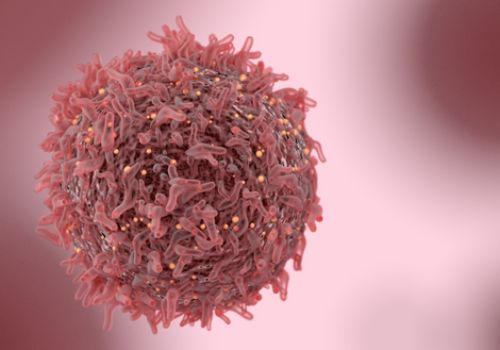
Working in the UK as a European Oncology Specialist
Understanding the status of your qualifications when registering with the GMC is critical to finding the best registration route for you and streamlining your journey to the UK and working in the NHS.
The breadth of global postgraduate oncology qualifications can confuse overseas oncologists as to the status of their qualifications in the UK. This blog aims to simplify subject, covering the following topics:
How do I register with the GMC as a European specialist?
EEA Countries
GMC-accepted EEA Primary Medical Qualifications (PMQ)
GMC-accepted EEA Specialist Qualifications
I am on the Specialist Register - what type of post can I be offered?
Skip ahead to the relevant section if you know what you’re looking for.
GMC Registration for European Specialists
When applying for GMC registration, all doctors must provide evidence of sufficient skills and knowledge. For oncologists from certain European countries (those within the European Economic Area or EEA), there is a group of relevant European qualifications which are accepted as sufficient evidence of skills and knowledge to practise in the UK.
These are Primary Medical Qualifications and European Specialist qualifications which provide eligibility for Full and Specialist Registration respectively.
European Economic Area (EEA) Countries
These are the countries from which a relevant European qualification would be accepted by the GMC*:
Austria
Germany
Netherlands
Belgium
Greece
Norway
Bulgaria
Hungary
Poland
Croatia
Iceland
Portugal
Cyprus
Ireland
Romania
Czech Republic
Italy
Slovakia
Denmark
Latvia
Slovenia
Estonia
Lithuania
Spain
Finland
Luxembourg
Sweden
France
Malta
Switzerland
*When determining the eligibility of your EEA qualification, it is important to check the given dates and evidence required by the GMC for acceptance.
EEA Primary Medical Qualifications
If your primary medical qualification was awarded by a medical school in an EEA country, it may be a relevant European qualification. Oncologists with an EEA PMQ are eligible for full GMC registration with licence to practise.
You can find out whether your PMQ is eligible and what qualifications and evidence you need to send to the GMC to support your application here or by selecting your country from the table above.
EEA Specialist Qualifications
If your specialist qualification was awarded after the completion of an EEA training programme, it may also be a relevant European qualification. Oncologists with an EEA specialist qualification are eligible for direct entry to the GMC’s Specialist Register.
You can find out whether your European Specialist Qualification is eligible by searching for oncology within this list and checking whether your country’s evidence is accepted (if your country’s field is blank for oncology, your qualification would not be accepted for Specialist Registration).
You can then check what qualifications and evidence you need to send to the GMC to support your application here or by selecting your country from the table above.
NHS Posts for European Oncologists on the Specialist Register
The NHS post you would be eligible for as a European oncologist would be dependent on your level of experience with your postgraduate qualifications taken into account.
If you are on the Specialist Register for clinical or medical oncology, you are eligible fo substantive consultant positions in the NHS - meaning you can be offered a permanent consultant contract to work in the NHS.
Without GMC Specialist Registration, you can still work as a locum consultant on a fixed-term contract, and attain Specialist Registration via the CESR Portfolio Pathway.
Oncology Consultants are in high demand in the UK, and thus command competitive rates of pay.
As a Consultant Oncologist, the pay you will earn can be broken down as follows:
Basic salary for 40 hours per week or 10 PAs (programmed activities)
Pay for additional hours worked
37% premium for night hours worked
Weekend allowance for hours worked
On-call allowance
There are also other wage premiums that may be offered.
You can find the latest pay scales for NHS Consultants across the UK here.
Please use these pay scales as a guide, but bear in mind that you may be eligible for a different rate of pay than stated, based on experience and/or demand. It is therefore worth checking what you may be entitled to with your IMG Consultant.
Sources
https://www.gmc-uk.org/registration-and-licensing/join-the-register/eea-countries
IMG Connect are here to help
We hope this helps to clear up any doubts around registering to work in the UK as an EEA oncologist and securing an NHS post.
Get in touch with our oncology team if you have any further questions regarding EEA entry to the NHS, CESR or oncology in the NHS more broadly.

Navigating MRCPsych Paper A and Paper B: Leveraging PassMRCPsych for Exam Success
Guest blog, written by Dr Jon Turvey, Core Psychiatry Trainee, Leicestershire Partnership NHS Trust
Dreams of providing quality psychiatric care within the dynamic medical landscape of a job in the NHS, often lead overseas psychiatrists from healthcare systems around the world to embark on the journey towards Membership of the Royal College of Psychiatrists (MRCPsych).
As a crucial milestone on the path to a career in psychiatry within the UK, the MRCPsych examinations provide an internationally recognised credential that sets the bar for clinical excellence, comprehensive medical knowledge and training, and confident decision-making skills in the field.
In this blog, we’ll be covering some of the key aspects of the Paper A and B exams, as well as introducing you to PassMRCPsych, an online learning and resources platform for MRCPsych aspirants, summarised in the headings below:
Why does MRCPsych matter?
An overview of MRCPsych Paper A
Unpacking MRCPsych Paper B
IMG Psychiatrists partners with PassMRCPsych
Mapping your MRCPsych journey
Using PassMRCPsych for exam success
Why does MRCPsych Matter?
The value of holding MRCPsych cannot be understated, serving as both a symbol of your medical competence as a psychiatrist and giving you a competitive edge in the NHS job market. Attaining full MRCPsych demonstrates to potential employers that you have the necessary knowledge, skills, and experience to provide high-quality care to patients.
MRCPsych also provides a steppingstone for further specialist training and can significantly enhance career prospects for international psychiatrists, more easily facilitating entry into more senior positions in the NHS, such as specialty doctor, the new specialist grade and consultant roles.
An overview of MRCPsych Paper A
Paper A is a written exam comprising 150 multiple-choice questions (MCQs) and extended-matching questions (EMQs), sat over 3 hours and now held online, through test centres. Paper A forms the foundation of the MRCPsych and focuses on the basic sciences that underline psychiatric practice. It touches on areas such as neurosciences, psychology, and social sciences, which are the cornerstone of psychiatry and set the scene for more advanced topics.
The average pass mark is typically around 60-70%, although this varies slightly depending on the difficulty of the paper for each diet. As per the latest statistics from the Royal College website, approximately 65% of candidates pass Paper A each diet.
You can find a detailed breakdown of the Paper A exam here.
Unpacking MRCPsych Paper B
Similarly to Paper A, Paper B comprises 150 MCQs and EMQs sat over 3 hours through a remote test centre. Paper B requires an understanding of more nuanced clinical topics like psychopathology, treatment protocols, and management strategies for psychiatric disorders. It's about applying your foundational knowledge to real-world scenarios and demonstrating effective clinical decision-making.
For Paper B, the average pass mark usually ranges around 65-70%, with a pass rate of approximately 60%.
See here for an in-depth overview of the Paper B exam.
Partnering with PassMRCPsych
As an exciting development in our provision of medical education, IMG Connect and PassMRCPsych have forged a partnership to offer extensive support to overseas doctors preparing for the MRCPsych exams. This collaboration aims to ensure your exam success through a series of exam-focused webinars and a continuously evolving and up-to-date revision resource to keep pace with the demands of the MRCPsych exams, along with discounts on revision course subscriptions.
Mapping Your Journey: A 4-Month Study Plan
Navigating the MRCPsych exams is no easy feat. It demands rigorous and methodical preparation for UK trainees and IMGs alike. Here's a 4-month study plan for each exam to keep your preparation on track:
Month 1: Get to Grips with the Syllabus - Familiarise yourself with the syllabus and identify key areas that you need to focus on (these may be areas you are less familiar with or those not covered by your current practice). Use this month to dive into the revision notes on PassMRCPsych. Join the IMG Psychiatrists Facebook group for access to Paper A and Paper B study courses to support your study alongside your PassMRCPsych resources.
Month 2: Deep Dive into Topics - In this month, start working on each topic systematically. Use the revision notes to ensure you cover every aspect and create your own short notes for quick revision closer to the exam date.
Month 3: Challenge Yourself - This is the month to test your knowledge. Attempt the MCQs in the question bank regularly. This will help you gauge your understanding and identify areas of weakness. Don’t forget to read the explanations when you get the answers wrong!
Month 4: Revise and Review - Revision is the key to retaining information. Revisit your short notes, attempt more MCQs, and make full use of the PassMRCPsych mock tests to familiarise yourself with the exam pattern. This final month should be dedicated to reinforcing your learning, particularly on topics which you need to keep in your short-term memory.
Remember, while this study plan serves as a roadmap, you should adapt it to suit your personal learning style and pace e.g., time available to prepare and external commitments. The aim is to ensure comprehensive understanding and effective retention of knowledge.
PassMRCPsych - Your Companion in Success
The seemingly vast MRCPsych syllabus might appear intimidating, but with the right guidance and resources, passing Paper A and Paper B can transform from an uphill task into an achievable goal. Here's where PassMRCPsych comes into play.
The online platform is armed with resources tailored specifically to the MRCPsych syllabus, from comprehensive revision notes that decode every topic in the syllabus, to an MCQ question bank with over 5000 questions, and mock exams providing the perfect opportunity to test your knowledge under timed conditions.
Better still, PassMRCPsych can also be used through a mobile app (on both iOS and Android), ensuring that your study materials are just a tap away and facilitating the seamless switch from studying at your desk to revising on-the-go.
It’s important to acknowledge that the MRCPsych exams come with a not insignificant cost. Understanding the financial constraints that often accompany rigorous exam preparations, PassMRCPsych offers highly competitively priced subscriptions which ensure that every aspirant, regardless of their budget, has access to top-notch preparation resources.
Dr Aisha, a satisfied user, shared her experience:
"PassMRCPsych.com was instrumental in my MRCPsych journey. The meticulous revision notes, the challenging MCQs, and the realistic mock exams provided an unparalleled learning experience. The convenience of a mobile app made it possible for me to study anywhere, anytime. And the affordable subscription didn't put a dent in my pocket while offering unparalleled resources."
Your Future Awaits
With your career goals within reach, embark on your journey towards conquering the MRCPsych exams by subscribing to PassMRCPsych for Paper A and Paper B. Utilise their exhaustive resources and mock exams, and watch your preparation transform into success!
For a walkthrough of the PassMRCPsych platform and resources, join the IMG Psychiatrists Facebook group.
To receive the latest news and updates on all things psychiatry, including the MRCPsych, GMC registration and the NHS, follow us on social media and join the conversation.